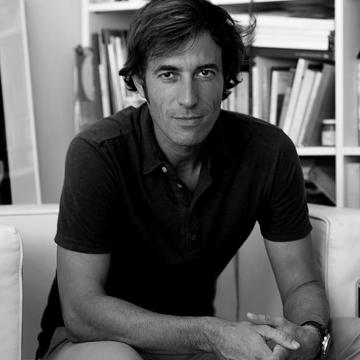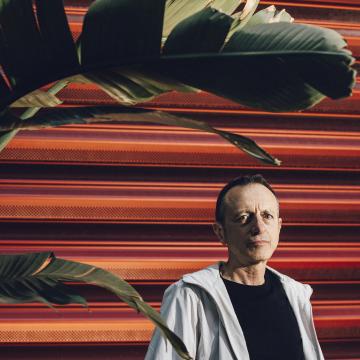Álvaro Gago, the director of ‘Matria’, chases Ramona with his camera in a frenzied story that has earnt actress María Vázquez her second Goya nomination.

José Naranja is not a common artist, nor does he consider himself one. However, his illustrated notebooks are real works of art everybody wants. A pleasure for lovers of contemplation, calligraphy, and drawing.
José Naranja (Madrid, 1978) is an extraordinary person. One who doesn’t seem to be affected by the frantic pace of the time in which we live. He lives calmly, focusing on what makes him unique—preserving ideas and experiences by expressing them on notebooks with the help of fountain pens, markers or watercolors; through beautiful calligraphy and drawings reminiscent of 19th century’s gorgeous scientific illustrations.
In 2005, he decided to narrate his trip around the world on a notebook, which led him to write his daily experiences in future diaries. “I no longer consider them travelogues because I don’t keep a diary about what happens in each destination. I tend to express independent ideas. On the same page there are a thousand intermingling elements.”
He isn’t a writer nor a draughtsman. In fact, he has never received formal artistic training. “I just try to do it carefully and do it well,” he says, downplaying his talent. Truth be told, José is an aeronautical engineer who, four years ago, quitted his job at Airbus to do what he likes most: traveling, observing and filing his notebooks for the love of art. "My parents don't quite understand it, but they know this is my passion." Indeed. He’s so enthusiastic about it, and so talented at it, that his notebooks— sixteen plus the one he’s got in his hands — have become an open secret in social media, where he accrues over 200,000 Instagram followers. "The good thing about social media is that they work as a loudspeaker that allows you to be seen anywhere in the world," he says, aware of the fact that a large part of his fans are foreigners. “Most people who buy El Manuscrito Naraja don’t understand Spanish, but they do perceive the dedication I put into each page. And, in the end, it doesn't matter whether they understand the words or not because the strength and authenticity of the inspiration are conveyed on every page.”
El Manuscrito Naraja is, for now, your only available notebook. Do tell us about it.
It’s a compilation of many of the pages from my personal notebooks. I designed it and put it on sale for people to have in their hands the images they so much praise on social media; for them have a tangible object, facsimiles of other notebooks with the same paper and the same feel to the touch.
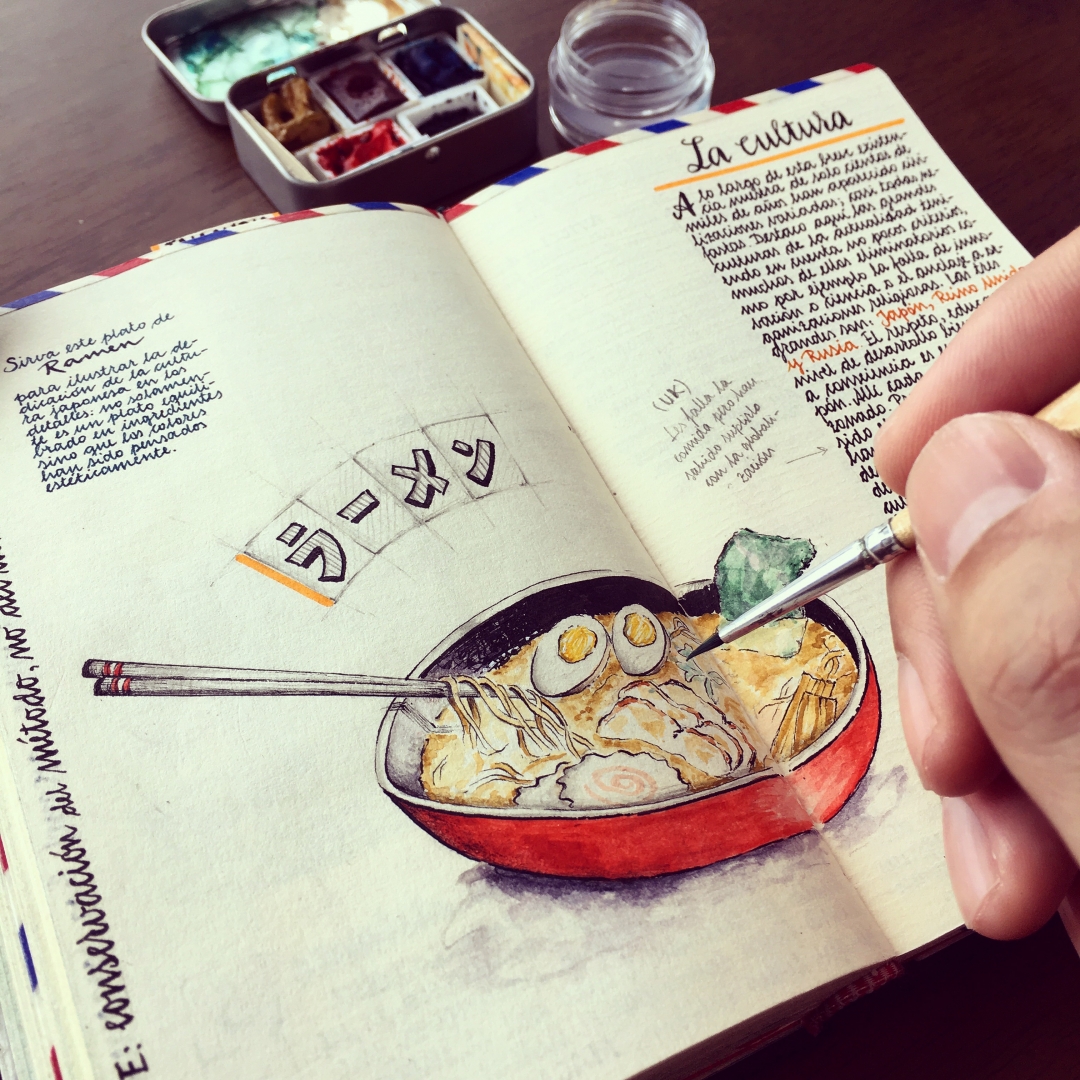
Drawing of a ramen dish. © Courtesy of José Naranja
Does the fact that people can access the most intimate you make you feel uncomfortable?
What I publish on social media or what I included on El Manuscrito Naranja aren’t my most personal things. Of course, there’s a part of me there, but not everything.
How would you define your notebooks? A work of art, a travel guide, an inspiration for others to be what they want to be?
I don’t know what to answer to that because I myself have trouble explaining exactly what they are. There are real elements, such as experiences, ideas, inventions... But there are also things that make no sense.
It can take you a year to finish one of your notebooks. Why put so much care and share something that you don’t even intend to sell?
I do it because I’m really passionate about it, and it just so happens people like it. It's great because I don't have to do things to satisfy customers, I don’t worry about whether they will sell or not. The most important thing for me is that my notebooks can somehow inspire the people who leaf through them, that they value what I write and draw. That alone encourages me a lot to move forward.
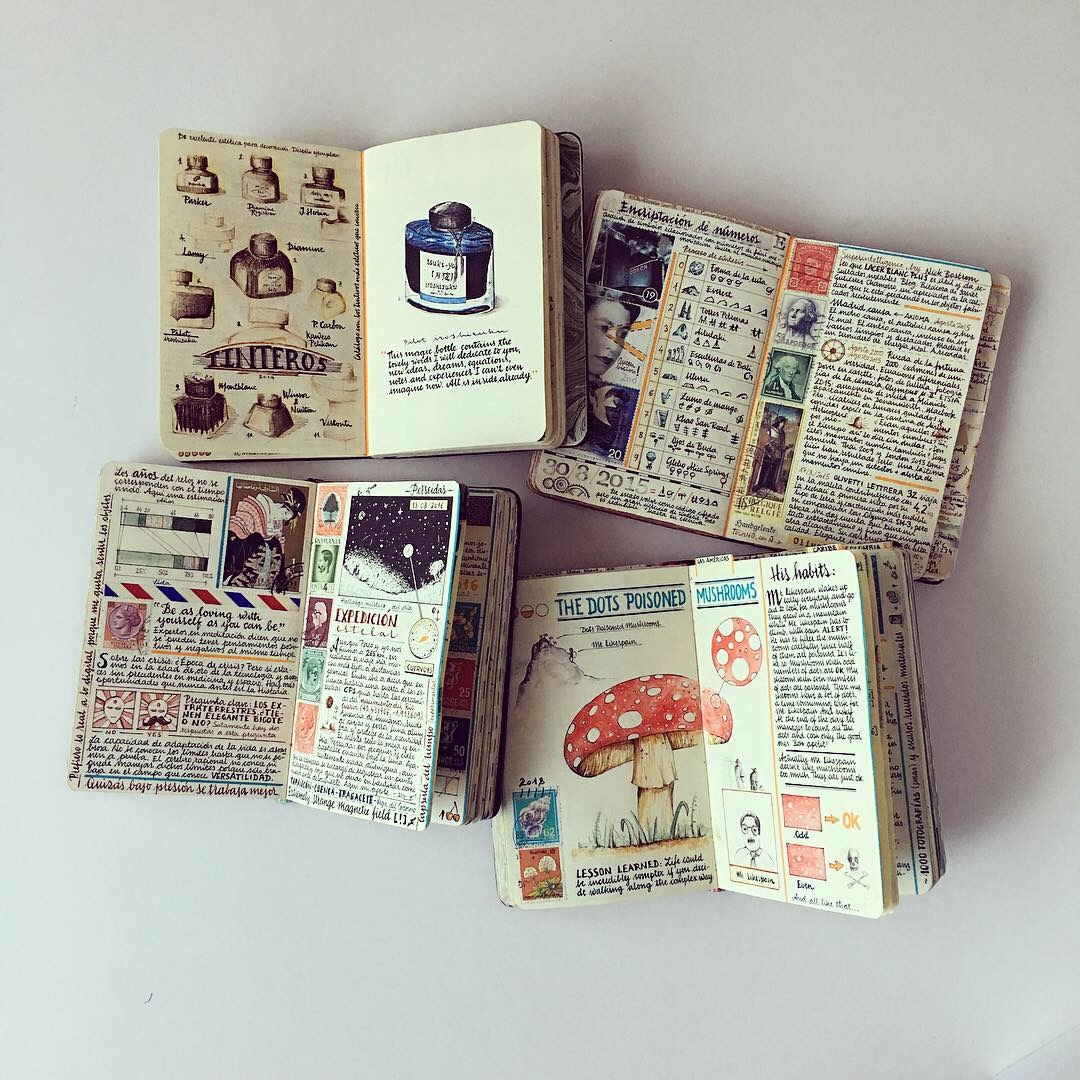
Some ilustrated notebooks. © Courtesy of José Naranja
Your work reveals a traveler looking closely at everything around him.
Living in one place for a long time makes you sometimes lose touch with the reality around you and what it means. That’s why traveling is essential. When you spend time abroad, you start seeing things differently. Looking at other cultures and other ideas, sometimes so different, is the starting point for reflection and criticism, always understood as part of an observation process. Above all, I consider myself an observer of the world.
“Traveling is essential. Looking at other cultures is the starting point for reflection. Above all, I consider myself an observer of the world.”
After a year of illustrating and carefully calligraphing your thoughts, what do you feel when you get to the last page of a notebook?
I usually have a feeling of nostalgia, of having finished something. But it also means that I’ll start a new one. I like to think the next one will be better than the previous one. I must confess that, when I finish a notebook, I kind of feel relief, since it usually happens in the middle of a trip and I’m always afraid of losing it, of getting it stolen or of it getting wet.
Your blog says: “I can find greatness anywhere.” Is José Naranja a romantic?
I firmly believe that, if you search well, you can find beauty in every situation, detail or object.
No need to move from your seat?
No, it’s everywhere. Although I perceive more life and inspiration when I’m traveling. That's when I feel all the pieces fit together.
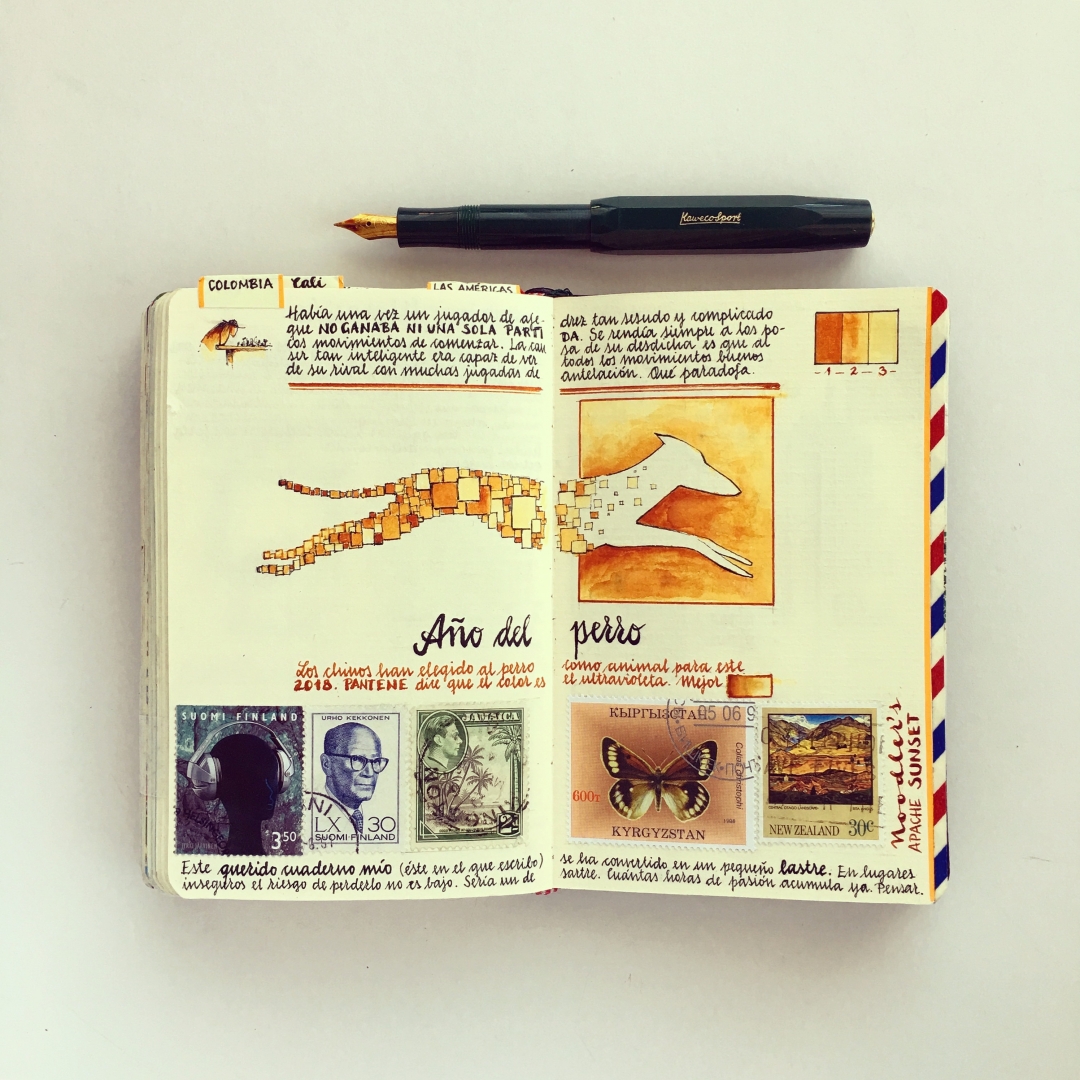
Dibujo dedicado al Año del perro. © Cortesía de José Naranja
